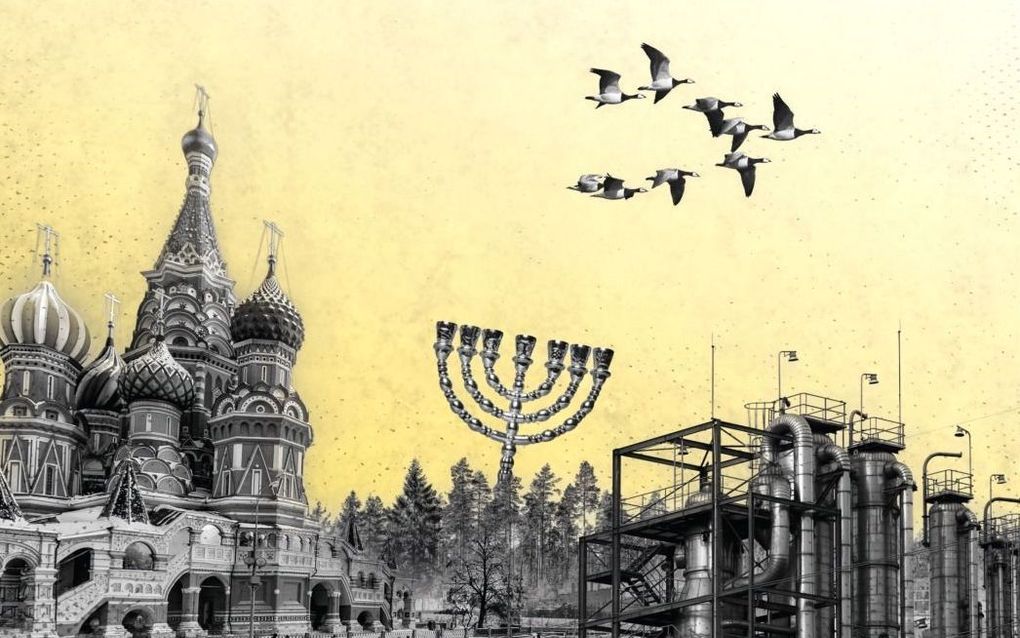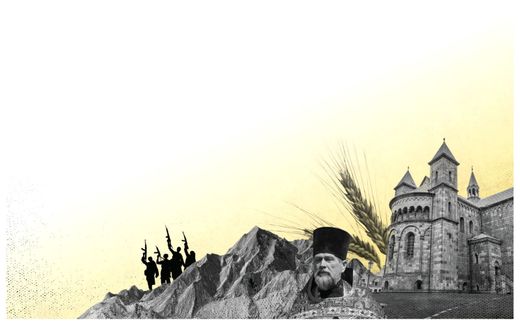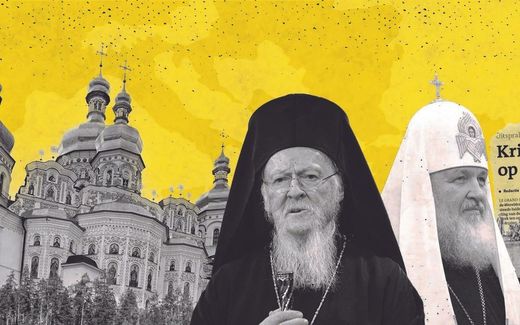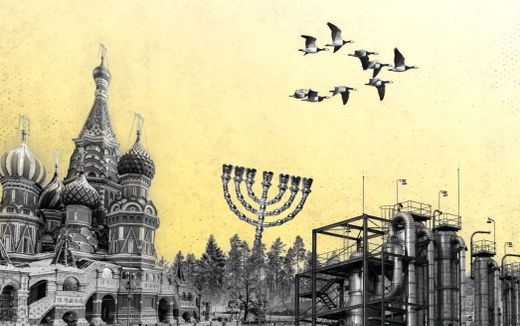The Russians are back and so is NATO (part 2/6)
15-04-2022
Opinion
Jakob Hoekman, RD

Illustration RD, Corné van der Horst
Opinion
There is one red line in the war between Russia and Ukraine. And that line seems to be holy for everyone. It is NATO. The military alliance is not to be pulled into the war.
NATO does not want that because the risk of a Third World War then becomes much more significant. Putin also wants to prevent NATO's participation because he understands that NATO is the strongest military alliance in the world.
But what exactly is it? For people who have grown up after the fall of the Berlin Wall, like me, NATO never seemed very important. And even NATO itself seems to think so. At the end of the 20th century, the alliance had to look hard to see her right to exist. It found it at the Balkan. When I delivered newspapers as a teen, NATO was suddenly on the front page because of its operations in former Yugoslavia, which had fallen apart. NATO fought against Serbia in particular. That country aggressively lectured other peoples.
Only strong together
During my research for this series of articles, I discovered that the operations in the Balkan area were the first military actions of NATO ever. More specifically, NATO has only been militarily active in two large conflict areas. In addition to Yugoslavia, the alliance has a mission in the Middle East. Since the terrorist attacks on the United States in 2001, NATO has been active, under more in Iraq, Afghanistan, Libya and Turkey. In that last country, the mission is still ongoing. Together with the Netherlands, NATO protects the airspace against possible attacks from Syria.
Yugoslavia and the Middle East. The two fronts give a good summary of the military actions of NATO. But they do not tell anything about why the alliance was founded in 1949. To learn about that, we have to go back to the Second World War, when the allied forces were able to conquer Nazi Germany.
The Soviet's Red Army advanced from the East; the Americans, Britons, and Canadians approached from the West. The Allied forces had made a monstrous pact: the autocratic Communists and the democratic Capitalists defeated the Nazis together.
But once the goal was reached, a new rivalry arose immediately. Was Communism the new model for the world, or was Capitalism from the West the new system? In Germany, a wall was erected, literally: an Iron Curtain between East and West.
But what if the Russians would climb over the wall? The best answer to that question is cooperation. The United States, Canada, the United Kingdom, the Netherlands and several other European countries signed the North Atlantic Pact on April 4, 1949, in New York. The North Atlantic Treaty Organisation (NATO) was born. Its goal was to keep the Russians away, even though the treaty does not explicitly say so.
However, it states that an attack on one of its member states will be seen as an attack on all member states. The content of the well-known article 5 of NATO is the core of NATO's business: only together we are strong.
Article 5 was only applied once. That was after the terrorist attacks on September 11, 2001. At the time, NATO immediately sent airplanes to help the Americans to secure their airspace.
Putin thinks he is the only one who can stop the expansion of NATO
In the meantime, NATO expanded its borders more and more. For example, Turkey joined already in 1952. And after the fall of the Berlin Wall in 1982, Eastern European countries were welcome to participate as well. These countries were eager to do so. And why not? The Cold War had passed.
It did in the Western minds, but not in the Russian soul. It was hit hard by every expansion of NATO. Poland? Hungary? Romania? Lithuania? Once, they were bulwarks of the Russian sphere of influence. But they joined the Western world by becoming member states of NATO one by one.
Outrageous, Putin thinks. And that is understandable. In 1990, American officials implicitly said that NATO would not endlessly expand to the East. Just see, Putin now says after several years: NATO does not keep its promises. However, the problem is that this promise has never been recorded in an official deal. That is why NATO does not see it as binding.
For a leader like Putin, it has become evident that he does not have to count on the words of the leaders of NATO. He is the only one who can stop the alliance from expanding more eastwards. How does he do that? By rewarding candidate states if they want to be close to Russia and threatening those who ogle to the Western world. And if that does not work? Then war seems to be an attractive alternative.
Just look at the reality: there are two crucial candidate member states for the NAVO, Ukraine and Georgia. When Georgia received an invitation to become a member of NATO in 2008, Putin reacted quickly. The same year, he invaded Georgia and occupied parts of the country. As a result, Georgia is still not a member state of NATO because NATO does not want to have a member with a conflict with Russia.
Putin confirms NATO's right to exist
If we fast forward to 2022, we see a candidate member state of NATO, a Russian president, an armed conflict, and NATO that does not want to be involved. It sounds very familiar. Suppose Ukraine does not become a member of NATO because of the Russian invasion. In that case, Putin will have reached an important goal already.
But he has achieved something else as well: NATO is again confirmed in its right to exist. Yugoslavia? The Middle East? The operations in these areas had to keep NATO alive. More and more voices proposed eliminating NATO. But that opinion is not heard very often anymore since the Cold War 2.0 rages. The Russians are back, and so is NATO.
This article is translated by CNE.news. It was published previously in Reformatorisch Dagblad on March 19th, 2022.
Related Articles






